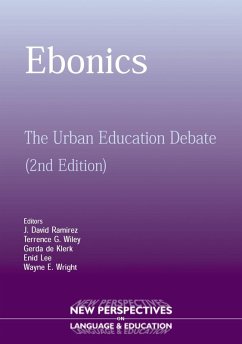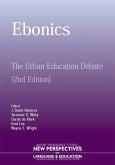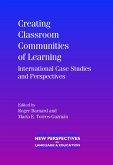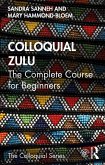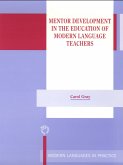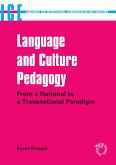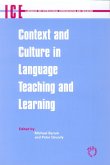Controversy erupted in 1996 when the Oakland Unified School District's 'Ebonics Resolution' proposed an approach to teaching Standard English that recognized the variety of English spoken by African American students. With new demands for accountability driven by the No Child Left Behind policy and its emphasis on high-stakes testing in Standard English, this debate will no doubt rise again. This book seeks to better inform this next episode.
In Part 1, leading scholars place the debate within its historical and contemporary context, provide clear explanations of what Ebonics is and is not, and offer practical approaches schools can and should follow to address the linguistic needs of African American students. Part 2 provides original documents that accompanied the debate, including the original resolutions, legislation, organization position papers, and commentary/analyses from leading linguists. This book is written for all those whose work impacts the lives of Ebonics speakers in our public schools.
In Part 1, leading scholars place the debate within its historical and contemporary context, provide clear explanations of what Ebonics is and is not, and offer practical approaches schools can and should follow to address the linguistic needs of African American students. Part 2 provides original documents that accompanied the debate, including the original resolutions, legislation, organization position papers, and commentary/analyses from leading linguists. This book is written for all those whose work impacts the lives of Ebonics speakers in our public schools.
Dieser Download kann aus rechtlichen Gründen nur mit Rechnungsadresse in A, D ausgeliefert werden.

